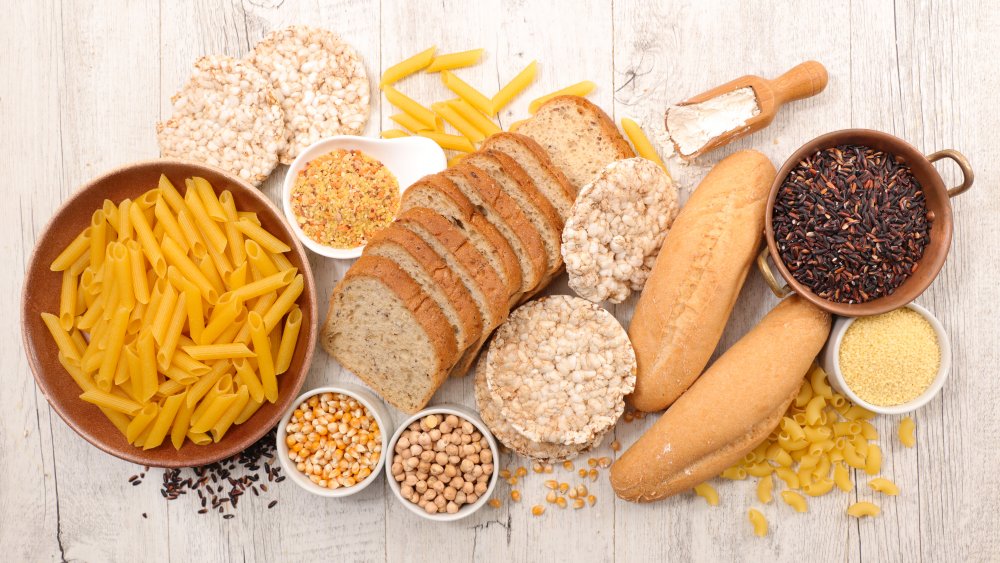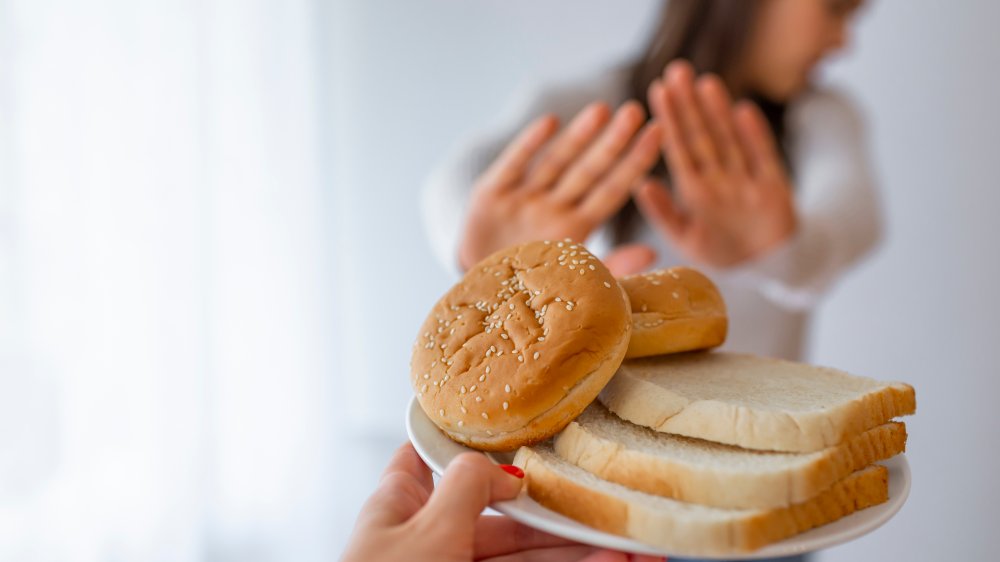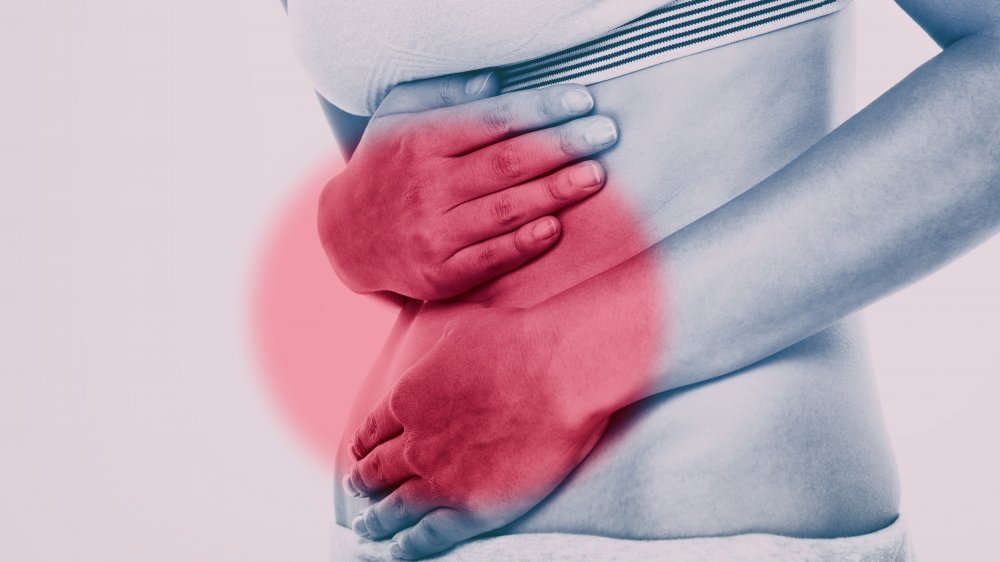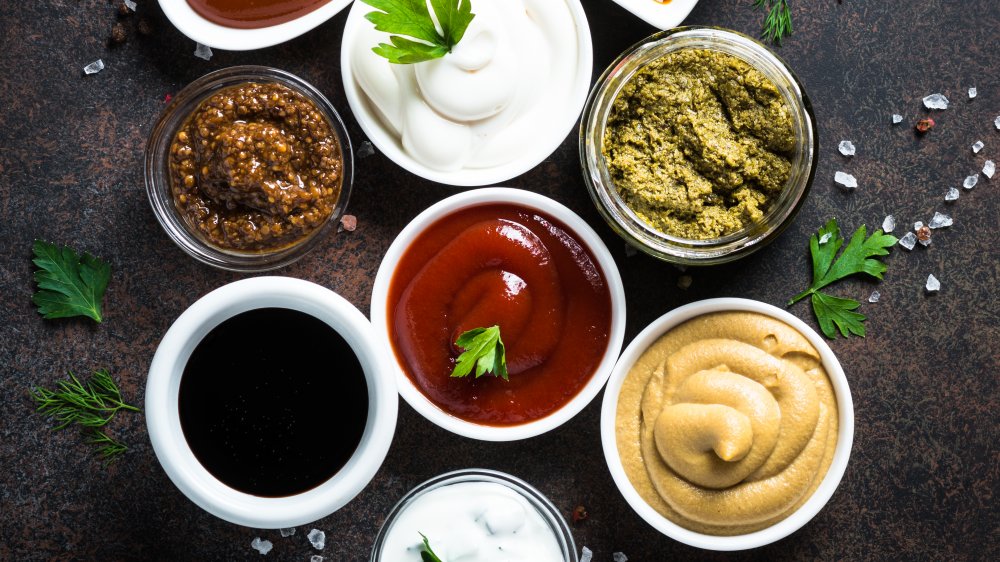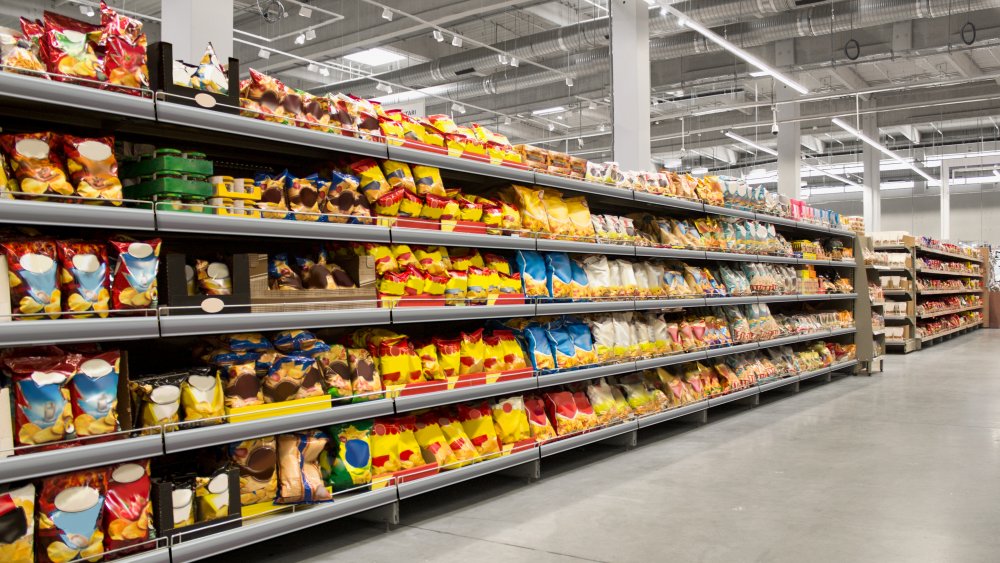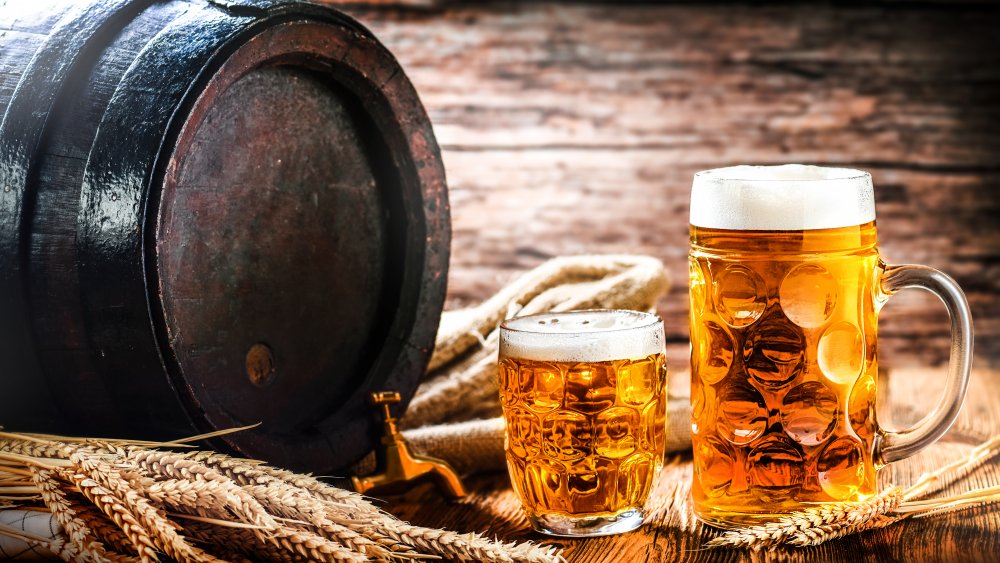Thinking About Going Gluten Free? Here's What You Should Know First
If you're considering going gluten free, it's important to consider why. Nowadays, there are all sorts of diets to address different nutritional needs and lifestyles. Some are steeped in research and medically necessary while others are just plain trendy. The gluten-free diet is particularly challenging because it can be both.
While it is vital for people with celiac disease to avoid gluten, many others simply choose to cut out the ingredient for their own health reasons. Many experts, however, tend to believe that any anecdotal health improvements achieved by going gluten free can be attributed to the overall dietary improvement that accompanies going gluten free, rather than the actual exclusion of gluten.
However, gastroenterologist and Harvard professor Dr. Daniel Leffler believes that "gluten is fairly indigestible in all people." He continued, telling Health, "There's probably some kind of gluten intolerance in all of us." Still, choosing to go gluten free and actually sticking to a gluten-free diet are two very different things. There are a lot of caveats to this diet, and a plethora of hidden gluten sources found on every shelf of your refrigerator and pantry. If you've been thinking of giving the gluten-free diet a go, here's what you should know first.
Only a small percentage of the population may actually need to go gluten free
It might feel like all the cool kids are going gluten free these days, but the reality is this: The vast majority of people do not need to swear off gluten. It is really only medically necessary for those who suffer from celiac disease, which, according to the Celiac Disease Foundation, is only 1 percent of people worldwide.
Nevertheless, many individuals want to wade out the substance found in certain grains for any number of personal reasons. In fact, a research letter published in JAMA Internal Medicine explained that while "the prevalence of celiac disease has remained stable" in the United States, the number of people who have adopted a gluten-free diet has skyrocketed.
Nutritionist Beth Warren told Self that those who aren't affected by gluten need not actively avoid it. Instead, they should seek out moderation of all foods. "For optimal health and weight, it is about finding and maintaining the right balance of food groups and quality of food choices," she said. Registered dietitian and nutritionist Karen Ansel echos this sentiment. She told the publication that eliminating gluten when it's not medically necessary can actually be harmful. And, according to registered dietitian Jessica Cording, eliminating gluten might end up also accidentally eliminating fiber, which is vital for good health.
If you've been diagnosed with Celiac Disease, you'll have to go 100 percent gluten free
There is a big difference between going gluten free for ambiguous lifestyle reasons and cutting out wheat proteins because you have been diagnosed with the autoimmune condition known as celiac disease, according to Healthline. If it is the latter of the two that has driven you to this path, you will need to take much stricter precautionary measures.
Eating gluten triggers an immune response in those with celiac disease and if not addressed, the condition can cause intestinal distress and eventual damage, in addition to a host of other complications. While there is no cure, most people are able to manage their symptoms and stay healthy by strictly avoiding foods containing gluten (via Mayo Clinic).
While cutting out gluten seems simple enough, there are actually a myriad of nutritional issues that need to be addressed once someone is diagnosed with celiac disease and removes gluten from their meal plans. That's why it's critical to revamp your diet with the help of a registered dietitian, according to Verywell Health. An expert can help you heal your body through diet, and guide you on the path to living normally with celiac disease.
Going gluten free is not a weight loss plan
While lots of people swear by a gluten-free diet, cutting out gluten shouldn't be considered a way to lose weight. That's just one of the things everyone gets wrong about weight loss. Unless you have been diagnosed with celiac disease, or perhaps a sensitivity to gluten, you can — and should — continue to eat all sorts of wheat and grains.
Some people who have gone gluten free, however, have experienced weight loss. If this happens to you, it's most likely due to the fact that you've cut processed foods out of your diet and have instead begun to rely more readily on natural, whole foods. While you may be tempted to attribute this to the act of going without gluten, there is no evidence to indicate this is true. As noted by the Cleveland Clinic, those who have actively decided to go gluten free also tend to be more conscious of the choices they make and are often willing to cut out other unhealthy habits.
It's also entirely possible to gain weight when going gluten free. Dietitian Margaret Weiss Masiello explained one reason for this to Everyday Health, saying, "Without the stretchy and sticky qualities of gluten, gluten-free recipes must use other means to hold starch-based products together. Frequently this is accomplished with larger-than-usual amounts of oil, eggs, and butter, which are very calorie-dense."
There is gluten in the most surprising foods and condiments
If you think going gluten free is as easy as ditching the white bread and pasta, then you have a whole lot more learning to do. Gluten is in all sorts of surprising sources, and sometimes it is far from obvious.
According to Everyday Health, a few items that include gluten are ready-made gravies and gravy packets, pickles (if they have been marinated in malt vinegar), hot dogs, and even most soy sauces. Furthermore, cross-contamination while cooking can make a naturally wheat-free item — like french fries — absorb unwanted gluten.
What's more, gluten can be found in plenty of non-edible sources, as well. Gluten is often used as a binding ingredient in medications and supplements; it is also commonly found in skincare products and makeup (via Everyday Health). Of course, this is not a major problem for the general population, but those with celiac disease will want to be more aware of these hidden gluten traps. Because heck, even traditional store-bought Play-Doh has gluten in it, per the company's parent company, Hasbro.
Yes, you can still eat out after going gluten free
If you've been diagnosed with celiac disease or have a suspected gluten sensitivity, know that you do not have to abandon your social life due to your gluten-free diet — nor will you have to give up your love of eating out at restaurants. You can still wine and dine; you will just have to resist that loaf of sourdough in the middle of the table and refrain from sharing some tempting appetizers.
Those with celiac disease need to be much more vigilant during their dining experiences, however. According to Gluten Intolerance Group, it's a good idea to call the restaurant ahead of time to check the menu and ask about procedures meant to eliminate potential cross contamination. It's also wise to talk to your server to explain your concerns — and do not be shy about confirming your order before taking that first bite.
If you are open to hitting up a chain restaurant, you might consider Bonefish Grill. The establishment tops both Healthline and VeryWell Fit's list of gluten-free friendly restaurants. Both publications also hail Outback Steakhouse as an early adopter of gluten-free menu options.
Only those with celiac disease may see skin improvements from going gluten free
Sorry to burst your bubble, but you most likely will not get a glowing and flawless complexion simply by eliminating gluten from your diet. Regardless of hearsay and anecdotal internet claims, most medical experts and dermatologists agree that gluten, on its own, does not cause skin inflammation or acne — at least in most instances.
Those with celiac disease, on the other hand, may see a marked improvement of their skin when going without gluten, as celiac disease may be associated with certain skin conditions, like psoriasis, hives, and eczema, according to Healthline. As such, when a person with celiac disease eliminates gluten from their diets, these conditions may clear up.
Interestingly, even those who suffer from celiac disease need not be overly concerned about using personal care products — like shampoos or moisturizers — that contain the wheat proteins. They just need to be extra careful to avoid accidentally swallowing any of it, per Mayo Clinic. Because, in case you did not already know, you are not supposed to consume your conditioner. However, you will want to avoid any gluten-containing versions of products that need to be used in the mouth, like toothpaste or mouthwash.
A gluten-free diet can cause nutrient deficiencies
You might have the best of intentions when you decide to go gluten free, but you actually could be doing your body more harm than good. Those who adopt a diet without gluten tend to lack several important vitamins, nutrients, and minerals, according to Verywell Health. This is because most gluten-free grain products are not fortified with nutrients and vitamins like gluten-containing products.
Celiac disease complicates matters further, as "the damaged small intestine [is unable] to properly absorb enough of the nutrients our bodies need," according to the Celiac Disease Foundation. "People recently diagnosed with celiac disease are commonly deficient in fiber, iron, calcium, magnesium, zinc, folate, niacin, riboflavin, vitamin B12, and vitamin D, as well as in calories and protein." According to the foundation, the small intestine is able to recover in the strict absence of gluten, thus making it possible to absorb nutrients properly. In such cases, vitamin and nutrient supplements aren't necessary. Other times, though, supplements may be required.
You'll need to start reading food labels when going gluten free
Unfortunately, looking for keywords on the outside of your favorite packaged foods will not ensure you are maintaining a gluten-free diet. It is much more complex than that.
According to Verywell Fit, food companies do not legally have to list every single "gluten-containing ingredient" on their packaging. They are only required to include ingredients that contain wheat. Additionally, "they don't have to disclose instances where a product has no gluten-containing ingredients but is produced on shared lines or a shared facility." That right there is a recipe for cross-contamination — something that will not affect those who are gluten free by choice, but can matter greatly to anyone with celiac disease or a gluten sensitivity.
To this end, the health site recommends opting for items that are specifically labeled as "gluten free" or, better yet, "certified gluten free." Those who are more experienced with avoiding the wheat protein should also start learning and scanning packages for specific names of ingredients with hidden gluten.
Gluten-free food isn't necessarily healthy
The term "gluten free" might make something sound instantly healthy to you, but the fact is: There are plenty of less than healthy gluten-free junk food options on grocery store shelves. If you are eradicating gluten because of celiac disease or a diagnosed sensitivity, you will want to shift your focus and restore your body by nourishing it with healthy snacks. Fresh fruits and vegetables are key, of course, as are other foods like almonds, nut butters, dried fruit, and some trail mixes, according to Verywell Fit.
On the flip side, if you just want to veg out in front of the TV from time to time with some comfort food in your lap, there are a plethora of gluten-free snack options to try — from Utz classic potato chips to Snickers bars to many varieties of Talenti gelato (via Insider). Occasionally, you just have to indulge!
You will need to start watching what you drink when going gluten free
If you are considering a gluten-free diet, you should be aware that it is not just some favorite foods you will have to give up. You will also need to do your due diligence and evaluate your preferred alcoholic beverages.
While there are plenty of ways to imbibe without chugging unwanted gluten, you'll want to watch out for certain beers and alcoholic drinks "made with malt, barley, and other gluten-containing grains," per Healthline. Those with celiac disease or a gluten sensitivity should actively avoid beers made with wheat or other gluten-containing grains, non-distilled liquors, and malt beverages — which includes wine coolers.
Additionally, the site recommends double-checking the contents of any beverages made with added flavors, pre-mixed smoothies, and distilled liquors (like whiskey or gin) as even those that are specifically labeled as gluten free have been "known to trigger a reaction in some people."
Some people who do not have celiac disease may benefit from reducing their gluten intake
While celiac disease affects just about 1 percent of the general population, medical professionals are still somewhat baffled by non-celiac gluten sensitivities, which may affect 10 percent of the population (via Health).
While celiac disease can be definitively confirmed, sensitivities fall within a "gray" diagnostic area as there is no real medical test to gauge one's intolerance. Daniel Leffler, a Harvard gastroenterology professor, explained to Health that researchers are just starting to understand that there is a whole spectrum of gluten sensitivity. So if you have continued stomach issues despite receiving a negative result for celiac disease, you could try to limit your gluten intake.
"Some people can be exquisitely sensitive and have to be as strict as people with celiac disease, while others can eat a pizza," Dr. Alessio Fasano, medical director of the University of Maryland Center for Celiac Research, told the publication. Of course, you should always involve your doctor in any major diet decision, and discuss all your symptoms to ensure there are no other problems at play.
You may feel more energized when you go gluten free, but that may have nothing to do with eliminating gluten
Going gluten free — whether it's out of necessity or "just because" — means you are fairly limited in some of the foods you can eat. More specifically, you will have to avoid a lot of processed items, which may mean you'll start relying on fresher, healthier foods — salads, lean meats, nuts, and fruits. As noted by U.S. News & World Report, "the constraints imposed by a gluten-free diet typically reduce the amount of blood sugar-spiking white carbs and sugar in one's diet, which forces an improvement in diet quality."
This can result in weight loss, physiological improvement, and, yes, an increase in energy. However, the article's author, registered dietitian Tamara Duker Freuman, is quick to note that "this occurs as the result of what replaced the low-quality, wheat-based food in your diet — not the removal of gluten, per se."
Your wallet may take a hit when you go gluten free
Eliminating gluten from your diet entirely and subbing in gluten-free foods is complicated in and of itself, but the cost of these foods makes it that much harder to swallow. A 2008 study in the Canadian Journal of Dietetic Practice and Research compared gluten-free labeled items to similar foods containing the wheat protein and found that the former foods were significantly higher in price. In fact, the research found that gluten-free items, on average, were a whopping 242 percent more expensive than their regular counterparts.
This enormous difference can take a hit on anyone's wallet, but it is most concerning for those who need these foods (like people with celiac disease) but cannot afford the high price tags. So what can you do to avoid the extra expense of going gluten free? Instead of purchasing lots of gluten-free prepackaged foods and store-shelved snacks, the Celiac Disease Foundation recommends seeking out "naturally gluten-free food groups," like fruits, vegetables, and nuts. Eat more whole, fresh foods and your body and your bank account balance will thank you.

